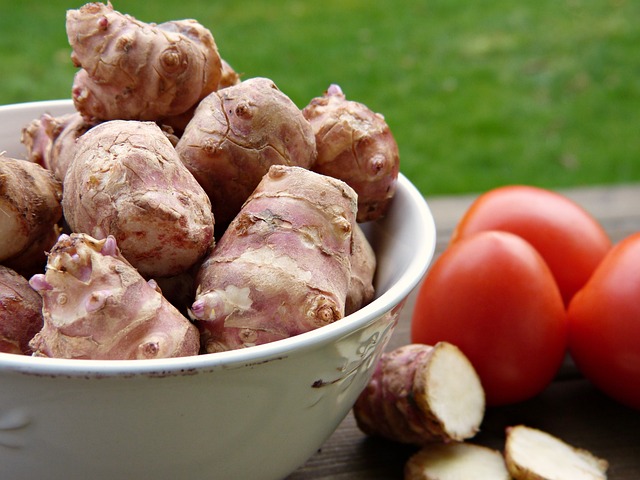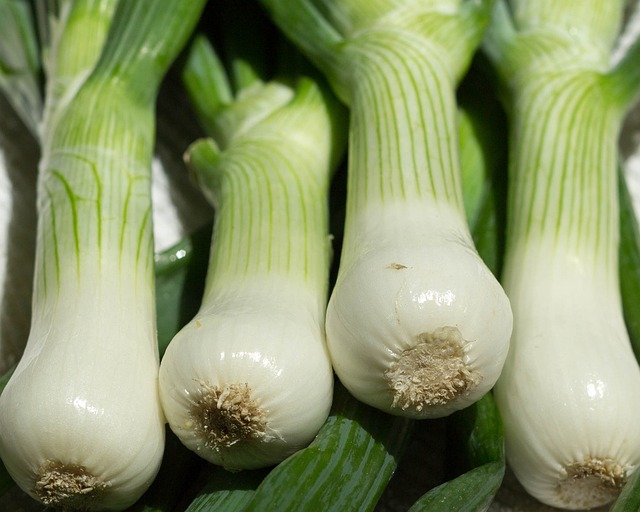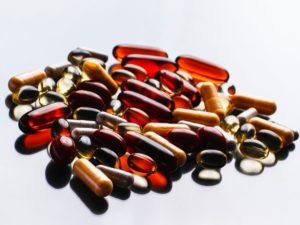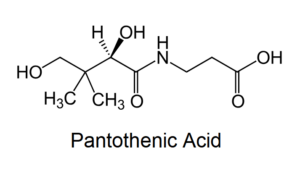Prebiotics

Prebiotics are nondigestible fiber that are preferentially consumed by the beneficial bacteria throughout the digestive tract. In other words, prebiotics are food for our healthy gut bacteria.
Numerous foods contain prebiotic compounds. Fruits, vegetables, beans, nuts and seeds all typically contain at least some prebiotic fibers. Prebiotics are also available as supplements, with the most common being inulin, fructooligosaccharides (FOS) and galactooligosaccharides (GOS) (Cardoso 2021).
Generally, prebiotics are thought to have an impact on health by helping to increase the levels of beneficial bacteria. Studies have also explored their impact on a number of different health conditions.
Prebiotics and Weight Loss
Body mass index, or BMI, is a measure often used to estimate if an individual is overweight. It is calculated from a person’s weight in kilograms divided by their height squared. In a meta-analysis of the effects of probiotics, probiotics + prebiotics and prebiotics alone, prebiotics were shown to be most effective at reducing an individual’s BMI (Teo 2024). In lay terms, this suggests that for an individual of average height and weight, prebiotics could help that person lose a little over 2.2 pounds.
Prebiotics and Gastrointestinal Health
While you might expect that prebiotics would have positive effects on gastrointestinal health, the research is a bit nuanced. Irritable bowel syndrome (IBS) is a common gastrointestinal condition that includes abdominal pain with diarrhea or constipation. The condition is often chronic and standard treatments don’t always bring relief. Studies have often employed probiotics and prebiotics to treat IBS. A meta-analysis of the research found that prebiotics and prebiotics combined with probiotics were not effective overall for reducing IBS symptoms (Wu 2025). However, probiotics alone were helpful.
The findings aren’t necessarily surprising, since studies on dietary approaches for treating IBS have found benefits by minimizing fiber and prebiotics in the diet (Sikaroudi 2024).
Some gastrointestinal conditions can be caused by the presence of pathogenic bacteria along the digestive tract. One of the more common problems stems from the bacteria Clostridium difficile or “C. diff.” The bacteria can cause life-threatening diarrhea and is often resistant to antibiotic treatment. Studies on using prebiotics have found that they can help to reduce levels of C. diff from between 30% to 80% (Rahman 2024).
Prebiotics and Other Benefits
Heart Disease Risk Factors
An overall analysis of the research on Inulin for reducing heart disease risk factors found potential benefits, albeit with low certainty of evidence. Inulin appeared to help lower bad cholesterol and triglycerides while also reducing weight, as previously discussed (Talukdar 2024).
Osteoporosis Prevention

Prebiotics appear to improve calcium absorption (Whisner 2018). As such they can help to decrease bone break down, decreasing bone loss and fracture risks. The benefits likely help to prevent osteoporosis as we age.
Mood Support
Prebiotics may help to improve mood in depressed patients (Yuan 2024). Their effects may stem from reducing inflammation and the improvement of metabolic function.
Conclusion
Prebiotics are a form of fiber that can help to support the growth of beneficial bacteria throughout the digestive tract. As a treatment, prebiotics may help with weight management and reducing levels of certain bad bacteria. They also may have a role in the prevention of heart disease and bone loss. Prebiotics could help with mood support, but due to their lack of benefits in irritable bowel syndrome, they may be best reserved for depressed patients without gastrointestinal symptoms.



